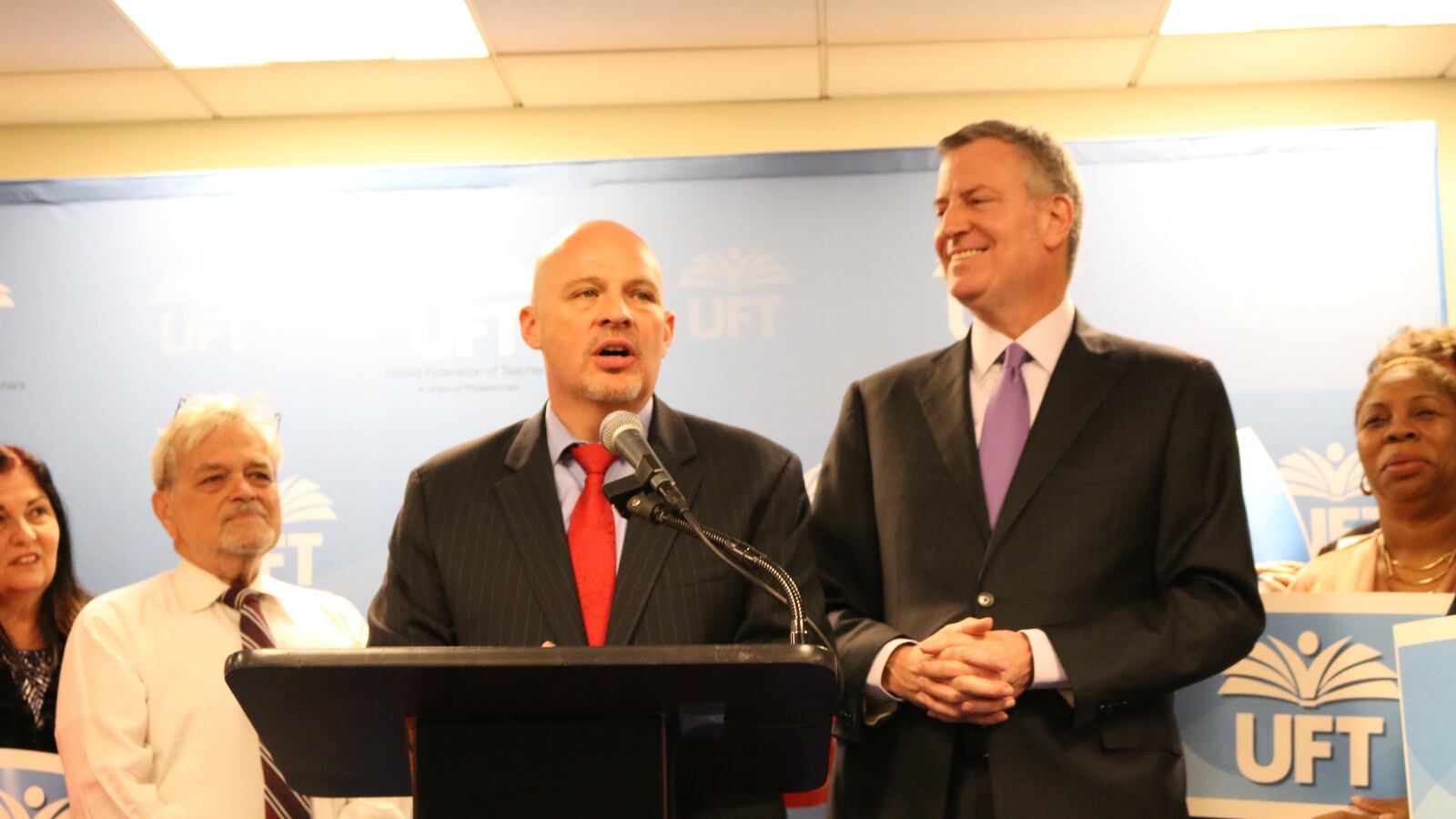The proportion of New York City teachers earning tenure held steady last school year — remaining at its highest point under Mayor Bill de Blasio’s watch.
Sixty-four percent of the 5,450 eligible teachers were granted tenure during the 2015-16 school year, an 11 percent increase since de Blasio took office, according to data obtained by Chalkbeat. But that’s still dramatically lower than a decade ago, when virtually every eligible teacher won the job protection.
Continuing a two-year trend, 34 percent had their tenure decisions deferred. Two percent were rejected outright, effectively ending their teaching careers in the district.
Under Bloomberg, who promised to move toward “ending tenure as we know it,” tenure approval rates plummeted from 89 percent in the 2009-10 school year to 53 percent the year before de Blasio took control of the city school system. Bloomberg argued that too many teachers were earning tenure too quickly, and the city began delaying decisions for a large portion of eligible teachers.
The numbers show that under de Blasio, teachers are slightly more likely to receive tenure as soon as they are eligible — typically after four “probationary” years. But they also show that the mayor has not completely reversed the approach of his predecessor, Michael Bloomberg, whose administration made attaining tenure more difficult — not by rejecting tenure applications, but by delaying a larger share of those decisions to a later year.
Over his first three years, de Blasio has slowly changed course. In his first year, tenure rates rose to 60 percent, a 7 percent increase that de Blasio said reflected his administration’s interest in rewarding and retaining top teachers. In his second year, the approval rate increased again to 64 percent — which held steady last school year.
Tenure
Create line chartsThe number of teachers whose tenure prospects were deferred also remained flat at 34 percent, down from a high of 44 percent in Bloomberg’s final year. Under both administrations, rejection rates have hovered between 2 and 3 percent. (Among the group of teachers whose tenure decisions had been previously delayed, 5 percent were denied last year, down slightly from 6 percent the previous year.)
“This year’s results illustrate a continuation in the trend of active, rigorous tenure decision-making,” according to a presentation provided by the education department. Officials said that deferrals are used as a way to give teachers more time to demonstrate their effectiveness, or when there isn’t enough evidence to make a tenure decision.
But a more important statistic is that the city almost never denies tenure outright, according to David Bloomfield a professor of education, law, and public policy at Brooklyn College and the CUNY Graduate Center.
Focusing on the relatively low tenure rate “leaves the impression that these teachers are no longer in the classroom — and that’s just false,” he said. “Denials of tenure aren’t going up.”
Tenure rules have been the subject of increased national scrutiny in recent years, and have been subject to lawsuits from Minnesota to New York that claim the protections keep underperforming teachers in the classroom and violate students’ right to an adequate education. (The courts have not necessarily bought that argument.)
For its part, the city’s teachers union said the proportion of educators whose tenure decisions are delayed is not a significant concern. “The more pressing issue,” said United Federation of Teachers chief Michael Mulgrew, is “that thousands of teachers — who earned tenure and are in good standing — decide to walk away from New York City public schools every year because they did not get the support they needed to help the children in their care.”

